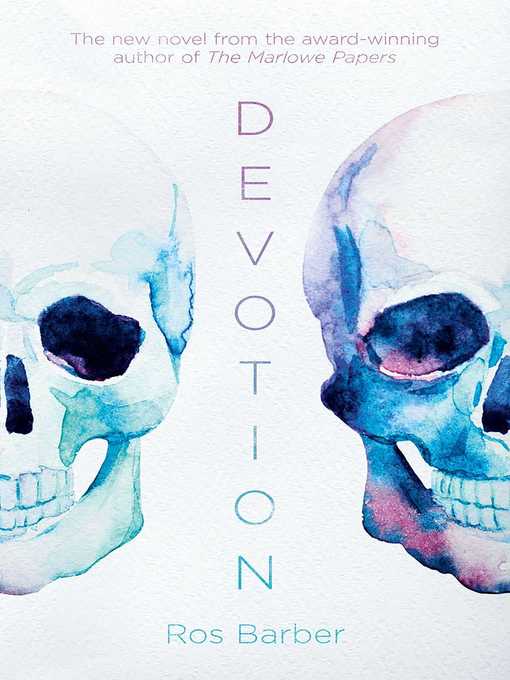
Devotion
کتاب های مرتبط
- اطلاعات
- نقد و بررسی
- دیدگاه کاربران
نقد و بررسی

March 14, 2016
Barber (The Marlowe Papers) thrusts readers into a near future where religious fundamentalism is on the verge of being labeled a mental illness, due to the prevalence of Richard Dawkins's brand of atheism. After Christian terrorist April Smith targets atheists in a bus bombing, Dr. Finlay Logan is assigned to assess her mental stability. Logan himself is an unstable character: after the loss of his beloved daughter in an accident, he loses all semblance of faith and is crippled by depression. When April undergoes a scientific procedure that creates a direct experience with God, Logan begins to make progress with his assessment but struggles with the question of his personal salvation. After undergoing a crisis of faith, Logan can either choose to medicate himself back into atheismâa secular, accepted optionâor opt for the same procedure April undergoes and have the God experience. Barber explores both paths as alternative endings, unearthing deeper questions over free will, human relationships, and the presence or absence of God in one's daily life. Barber handles these concerns with finesse and grace, but the book's great weakness is that Logan, as a womanizer and absent father, is unlikable and difficult to sympathize with beyond his traumatic loss. Despite this, Barber's poetic prose is a sheer pleasure to read, and because of her skill, the book is a rewarding meditation on the tragedies that motivate or destroy a person's reasons for living.

February 1, 2016
In a novel that examines the divide between skepticism and religion, Barber (The Marlowe Papers, 2012, etc.) uses the sweeping ideas of faith and science to delve into the story of a man struggling with the ever incomprehensible force of grief. Finlay Logan is a criminal psychologist in a near-future England where popular opinion and government action are pushing to classify religious fundamentalism as a mental illness. While investigating the medically defined sanity of April Smith, a teenager who committed a shocking atrocity inspired by her religious beliefs, Logan finds himself grappling with his own tenuous grip on mental health. Nearly destroyed by grief after the accidental death of his adored daughter, Logan seeks perverse solace in an excess of work and a growing gulf of misunderstanding between him and his wife. Despite his efforts, he struggles to connect with April enough to assess her sanity and turns to the alluring Gabrielle Salmon, a cognitive scientist who studies consciousness, induces spiritual experiences with lab equipment, and claims to have been in contact with the dead. Logan's professional interest in belief becomes an intensely personal choice between pharmaceutical and religious salvation. The novel splits into alternate storylines based on his decision, playing with motifs borrowed from quantum mechanics. It survives this brutal division, bolstered by Logan's fascinatingly miserable character, so finely drawn in competing urges. He is manipulative, unfaithful, dubious, and yet often motivated by the irreproachable urge of love. Though Barber sometimes veers into absurdly extended metaphors, that excess occasionally uncovers extraordinarily beautiful and piercing images that solidify a story of the ineffable. "Her eyes open painfully wide, and in a blink, two teary blinks, are emptied of love and stuffed to their lids with shock." Barber's sensational premise delivers an unexpectedly piercing exploration of loss and different kinds of faith.
COPYRIGHT(2016) Kirkus Reviews, ALL RIGHTS RESERVED.

April 15, 2016
Set in a near future with commonplace 3-D food printing and ubiquitous Internet-accessing glasses, Barber's (The Marlow Papers) new novel conjures an anxious and disappointed middle age for millennials. These crises, though, are offset by a glimmer of hope: a neural treatment combating grief, guilt, and loneliness by activating a connection to a higher power (maybe God, maybe not). When a God-loving murderer of atheists finds peace after the treatment, her therapist--a grieving father and neglectful husband--cannot deny the allure of letting go of pain despite his scientific skepticism. Shifting the narrator's point of view among Dr. Finley Logan, the mute killer, and Logan's even more doubtful wife, Jules, Barber empathetically explores a spectrum of human feelings about God without overt preaching. VERDICT With direct allusions to Yann Martel's Life of Pi, Barber ensures that this book is for the pop culture-aware, spiritually open reader. New Weird fans of Kelly Link and Johanna Sinisalo will find a lot to love, and watchers of twisty-but-uplifting sf films such as Sliding Doors or Pi will enjoy.--Nicole Steeves, Fox River Valley P.L. Dist., IL
Copyright 2016 Library Journal, LLC Used with permission.

























دیدگاه کاربران